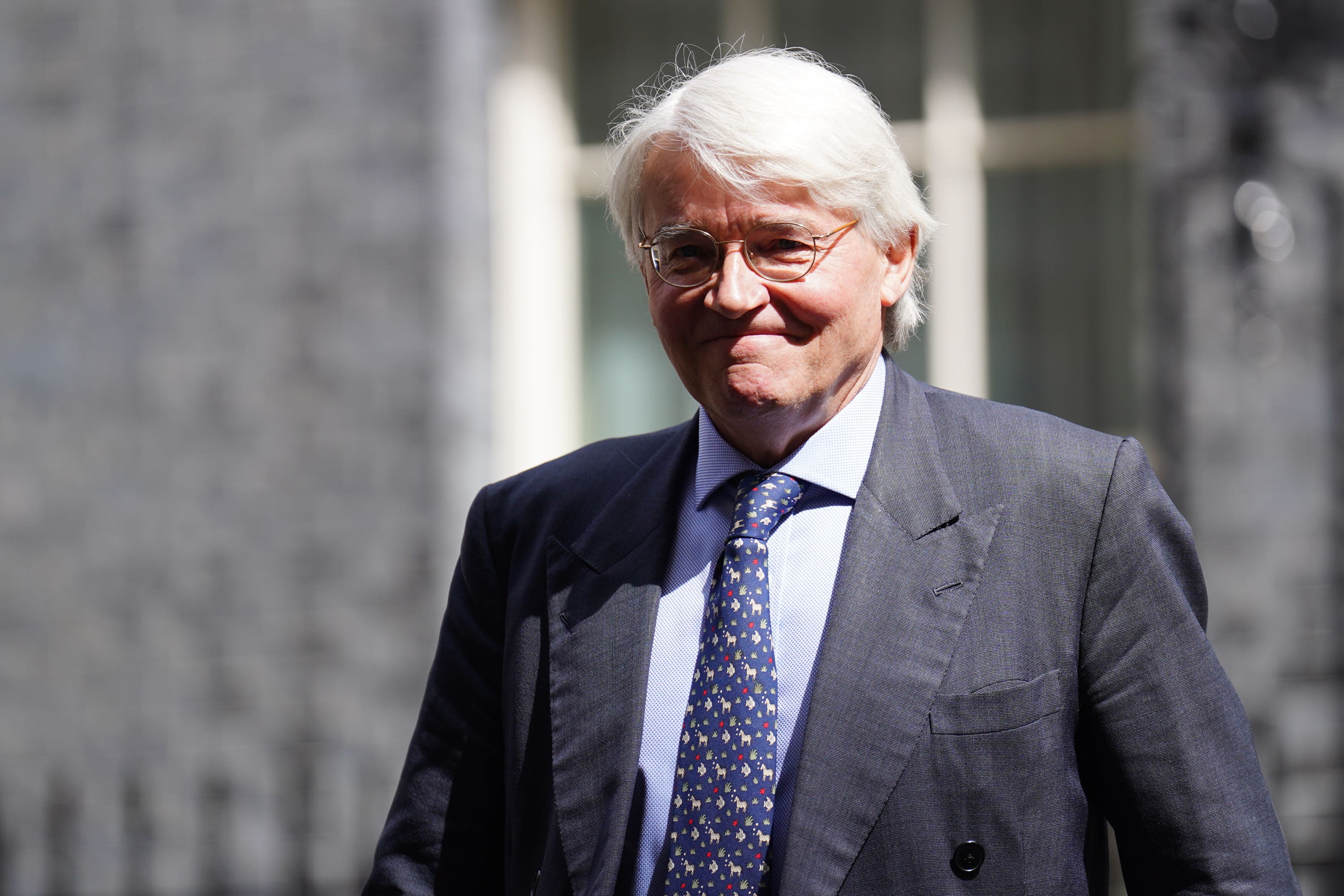UK: Safe zones extremely difficult but plausible in southern Gaza
Foreign Office minister Andrew Mitchell said the UK Government continues to believe a ceasefire is not possible.

Your support helps us to tell the story
From reproductive rights to climate change to Big Tech, The Independent is on the ground when the story is developing. Whether it's investigating the financials of Elon Musk's pro-Trump PAC or producing our latest documentary, 'The A Word', which shines a light on the American women fighting for reproductive rights, we know how important it is to parse out the facts from the messaging.
At such a critical moment in US history, we need reporters on the ground. Your donation allows us to keep sending journalists to speak to both sides of the story.
The Independent is trusted by Americans across the entire political spectrum. And unlike many other quality news outlets, we choose not to lock Americans out of our reporting and analysis with paywalls. We believe quality journalism should be available to everyone, paid for by those who can afford it.
Your support makes all the difference.Safe zones to help bring humanitarian relief to people in southern Gaza are “extremely difficult but plausible”, according to a Foreign Office minister.
Andrew Mitchell maintained the UK Government believes a ceasefire in the Israel-Hamas conflict is “implausible” and there is “no possibility” of one taking place given both sides appear unwilling to agree to one.
But Mr Mitchell, while pressing the need for further pauses in the fighting, said talks are ongoing about the prospect of creating safe areas to provide support whilst acknowledging the difficulties of guaranteeing the security of such areas.
In respect of southern Gaza, we are exploring every possible mechanism to bring the relief of humanitarian supplies, including the extremely difficult but plausible advent of safe zones.
Mr Mitchell added there have been “no new developments” in the release of hostages, with the Ministry of Defence (MoD) conducting unarmed surveillance flights over the eastern Mediterranean, including operating in airspace over Israel and Gaza.
He also suggested the UK Government is considering introducing travel bans for Israeli settlers responsible for violence against Palestinians in the West Bank, saying the idea has been discussed with US counterparts and more details could be released soon.
Several opposition MPs used the Commons urgent question to criticise the UK Government for last week choosing to abstain on a United Nations resolution demanding an immediate humanitarian ceasefire in Gaza.
Labour MP Rachael Maskell (York Central) asked if talks had been held about a ceasefire in the south of Gaza, noting many Palestinians were sent there for their security and safety.
Mr Mitchell replied in the Commons: “For reasons she will understand there was no discussion about a ceasefire within the Government.”
He added: “In respect of southern Gaza, we are exploring every possible mechanism to bring the relief of humanitarian supplies, including the extremely difficult but plausible advent of safe zones.”
Labour MP Karen Buck (Westminster North) earlier said: “With hundreds of thousand of Palestinians now homeless and parts of northern Gaza rendered effectively uninhabitable, understandably there is real concern many people will not be able to return to their homes.
“Can the minister tell us what representations he has made, that would make it absolutely clear, that permanent forced displacement of the Gazan population is unacceptable, not just across international borders, not just into the West Bank but also within Gaza itself?”
Mr Mitchell replied: “In order to help those people the possibility of providing safe areas where support can be given is being actively looked at by the United Nations.
“The problem with safe areas is that they have to be absolutely safe and we have to understand both Hamas and Israel and every other entity will guarantee the safety when people are brought there to receive support.
“So it’s an ongoing discussion but it’s an area of considerable concern to the United Nations and other humanitarians who are seeking to operate in this space.”
You have to start somewhere to save lives, you have to start somewhere to prevent this catastrophe getting even worse on top of the 18,000 already killed in Gaza.
On the prospect of a ceasefire, Mr Mitchell told MPs: “A ceasefire at the moment is wholly implausible … first of all Hamas would not agree to a ceasefire, they’ve made it absolutely clear that they want to replicate the terrible acts that took place on October 7, so I fear very much that it’s not going to happen and that is why we call for extended humanitarian pauses and that, as I understand it, remains the position of his Majesty’s official Opposition.”
Mr Mitchell later said: “A ceasefire is simply impractical because you have to have two sides that are willing to sign up to a ceasefire and there’s absolutely no suggestion at any point that either of them will.”
Former Labour leader Jeremy Corbyn said the UK should stop being “isolated in this ridiculous approach in which we’re saying somehow or other a ceasefire can’t work”, adding: “You have to start somewhere to save lives, you have to start somewhere to prevent this catastrophe getting even worse on top of the 18,000 already killed in Gaza.”
On hostages, Mr Mitchell also said: “I cannot give the House a running commentary on what is happening in respect of the hostages, but I can tell him there have been no new developments.”
Conservative MP James Sunderland (Bracknell) said few would deny Israel’s right to defends itself against Hamas, adding: “But as a military man I don’t always find it easy to reconcile that with what we are seeing on the ground in Gaza or the broader operational nature of that campaign.”
He sought assurances about the efforts behind closed doors to ensure Israeli “restraint”, with Mr Mitchell saying: “We are doing everything we can to make the point that he has emphasised.”